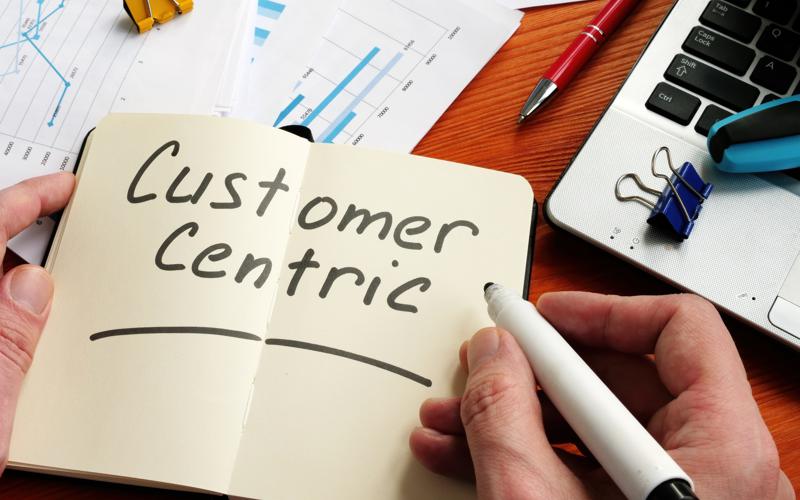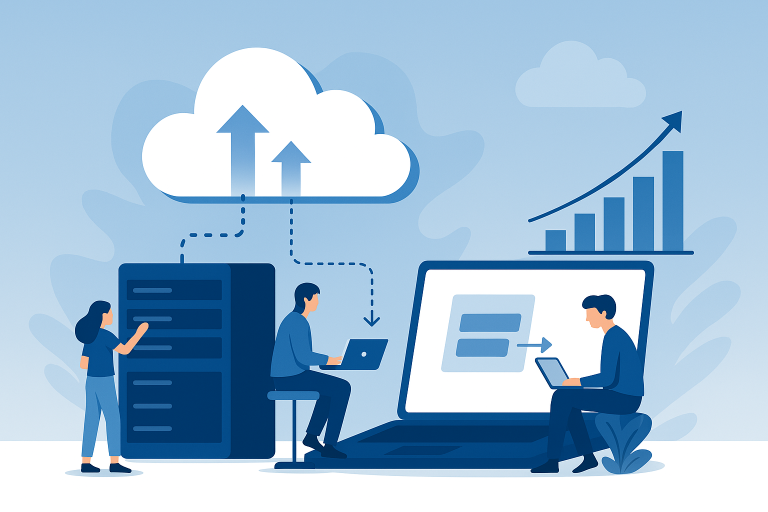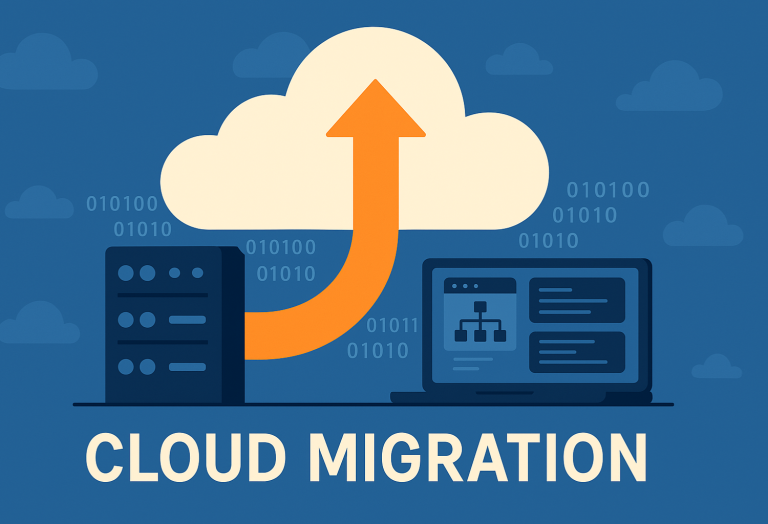
The COVID-19 crisis has changed the customer needs and expectations a whole heap. Meeting new consumer requirements has become vital to post-COVID-19 business success. Therefore, business authorities have focused on customer-experience transformation. But, sometimes, companies are facing challenges to achieve the required changes. Achieving a customer-centric transformation is essential for modern businesses. Managed services play a crucial role in this process by providing the necessary tools and expertise to enhance your customer experience. By integrating managed services into your strategy, you can drive a successful customer-centric transformation and meet evolving customer expectations effectively.
To become customer-centric, prioritize understanding your customers’ needs and preferred interactions over focusing on products, features, or revenue models.
The good news is that there is a proven formula to help you in executing customer-experience transformations. The concept is based on three core building blocks:
- a clearly defined aspiration
- an agile transformation approach
- the thoughtful deployment of new capabilities
Based on these three pillars, companies can create a competitive advantage in their industry. To make your transformation smooth and successful, it is good to have a trusted managed service provider (MSP) by your side.
Build aspiration and purpose for customer-centric transformation
When organizations set out to define their customer-experience aspiration, it is essential to be well-defined, including all details and aligned tightly to the company’s purpose. Otherwise, it will be unclear how the aspiration creates value. A good customer-experience aspiration delivers on business purpose and brand promise. Then, you work to translate aspirations into expected business value by defining the specific changes in customer behavior. Many companies prefer to use statistical analysis and quantitative research to make their decisions about what customers value so they can prioritize the requirements that matter most.
An MSP can help you to analyze the changed requirements of your consumers and develop a customer-centric vision and aspiration. They also help you align your aspiration to business goals and translate the requirements into an achievable roadmap.
Many forward-looking organizations use integrated data lakes and advanced analytics to enhance consumer experiences. Additionally, an efficient MSP can deploy a customized analytics engine, which enables leadership to identify customer interventions and investment strategies. Consequently, this helps you plan more effective, customer-centric strategies.
Transform the business for customer-centric strategies
Successful development of a comprehensive customer-centric transformation road map is not enough. It is essential to implement the same flawlessly. There might be some miscommunication, ownership issues, and accountability problems as you incorporate changes in several day-to-day operations.
For successful transformation, companies need agile, cross-functional teams with strong technology expertise, project ownership, and a culture of design thinking and continuous improvement. Therefore, to achieve the best results, implement Agile methodology and invest in recruiting and developing agile teams with expertise in experience design, omnichannel platforms, and innovative product and service development.
Your managed IT service provider can help you to incorporate Agile methodology in your company and also provide tech support to upgrade your existing infrastructure to bring the required changes for business transformation.
Enable the customer-centric transformation
To incorporate the required changes into your business, you can follow the four basic strategies—these are most critical for success.
1. Customer-centric mindsets
For effective transformation, your employees must feel confident that they have the necessary skillsets, tools, and technological support to deliver the best possible experience for consumers. Therefore, you can consider your managed IT support partners to upskill employees. Specifically, they utilize digital courses, live workshops, online or offline training, and regular refresher sessions to support the development of new capabilities.
It is essential to develop skills around redesigning customer experiences and deploy cross-functional teams. Even MSPs also provide tips to executives on how to support, accelerate, and celebrate customer-centricity within the organization, such as integration of design thinking into the early stages of the strategic planning process.
2. Integrated technology stack
All with a customer-centric mindset, proper technology support is also essential to fuel your transformation. In order to provide excellent omnichannel customer experiences, organizations need to opt for cutting-edge technologies that help expand the services. Your MSP can help build a digital platform using microservices and APIs for fast, flexible services. Additionally, they can establish an omnichannel contact center with integrated call, video, text, and email management.
3. Change in operating model and governance structure
To drive customer-centric transformation, upgrade your operation models and marketing strategy. Additionally, your MSP can enhance your cloud-based go-to-market program with digital marketing technologies and customer experience strategies.
4. Use of predictive analytics and machine learning to build a performance-management system
Organizations use predictive analytics, big data, and machine learning to overcome limitations in incomplete or inaccurate customer feedback. Consequently, by implementing advanced feedback loops, they guide employees on effective behaviors and help innovation teams target their efforts more precisely.
Advanced analytical tools help organizations predict customer satisfaction and future spending trends based on feedback, service needs, and experiences.
Conclusion:
Customer experience is a competitive advantage in the post-pandemic landscape. Given the three building blocks of customer-centric transformation, you can emerge from the current vulnerable situation with a sustainable edge over competitors. To ensure a fast, smooth, and effective transformation, consider partnering with a trusted MSP. Moreover, today’s managed IT services partner goes beyond business process outsourcing, offering core domain expertise and tech support to enhance the efficiency and effectiveness of your key functions.

